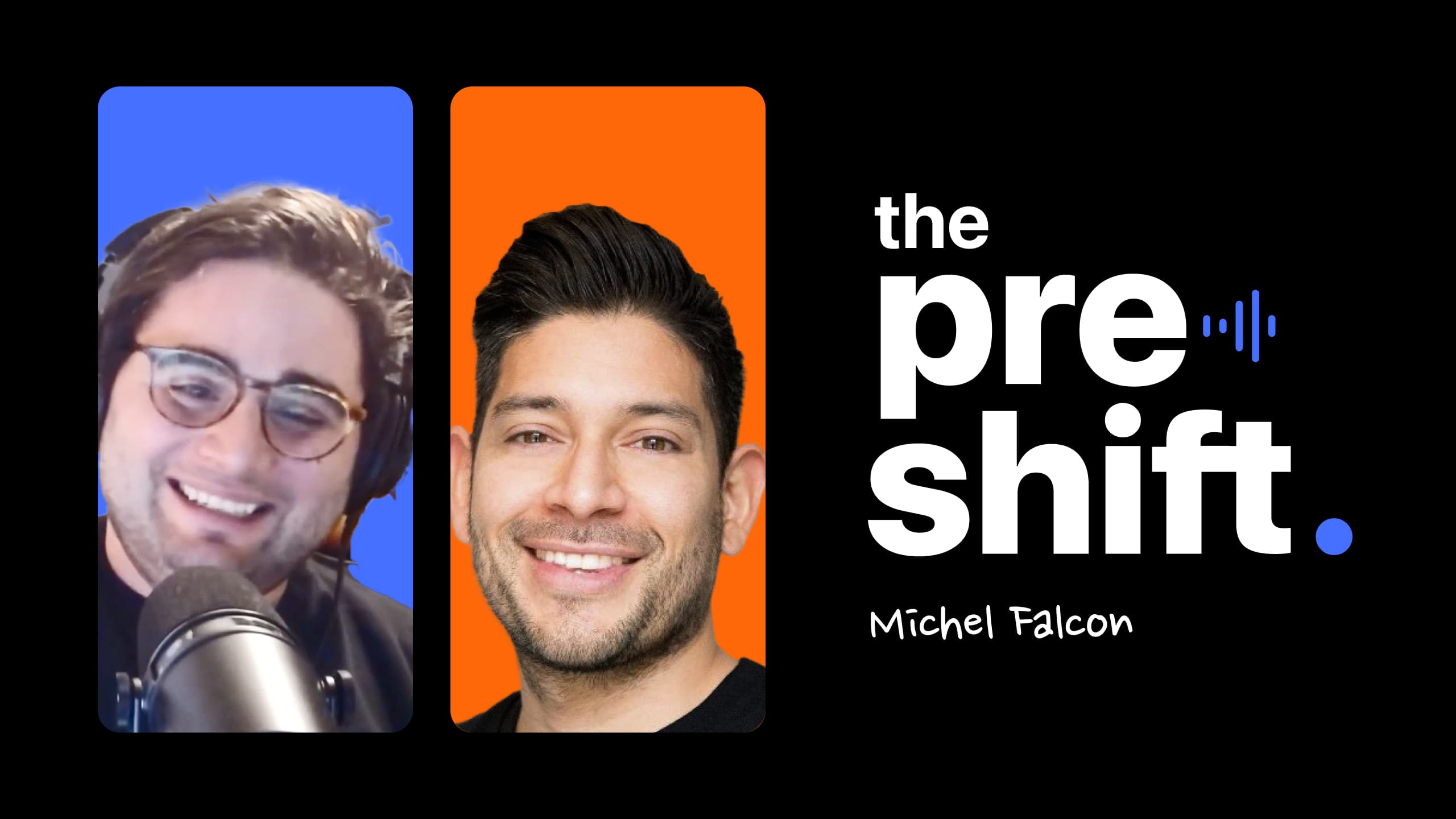Meet Michel Falcon, Founder of Brasa Peruvian Kitchen.
Michel started his career as a management consultant with a focus on company culture, customer experience, and employee performance. What began as a three-month consulting gig for a hospitality brand turned into six months—and then into a full-blown partnership. That’s when Michel found his calling to do more in the restaurant industry.
He went on to launch Brasa Peruvian Kitchen (during the pandemic, no less), a fast-casual concept built to share the bold, vibrant flavors of Peruvian cuisine. The Canadian concept quickly became a multi-location brand and recently expanded to New York City. We spoke with Michel on The Pre-Shift Podcast to discuss what it’s like to rewrite restaurant employee experience—and how you can do it too.
Listen to the episode
The employee experience at Brasa, backed by data
Michel takes pride in the employee experience he’s built at Brasa. And he’s not just talking the talk—he also has the data to back it up:
- 1,000 applications per month (an impressive number for a smaller brand)
- 17% employee turnover year-over-year (well below the industry average)
On how it pays to pay more (and be transparent)
Michel doesn’t believe in minimum wage. At Brasa, they use the term ‘starting income.’ And that starting income (at the time of recording) is $20 an hour, with some employees making $70,000 in salaried roles within less than a year.
On one hand, it’s a conscious thing: ”I don’t want to be a reason that people are stressed out financially just because I’ve seen it, and it’s not a great way to live your life.” But on the other hand? It’s a business move—to pay more but for fewer people. After learning about this concept in the book, No Rules Rules, Michel wondered if it could apply to the world of fast-casual. And he says, “It does. We are paying top of market without collecting tips from our customers.”
He also has the data to back it up:
- Brasa’s labor costs sit between 15% and 17%
- One location is generating a net profit of 33%
This works because high pay comes with high expectations—and the employees at Brasa understand that. Michel says, “I will be the first to tell you, we’ve had some people leave and say, ‘It’s really hard to work here.’ Not because we’re rude or anything, but because talent density only works if each person is equal to a person and a half. Whereas in some companies, you can just come in and do the bare minimum and move slowly—no, we’re akin to a championship-winning sports team.”
He provides this analogy: “ With the Cirque du Soleil, if one person decides not to bring their A-game, the whole show is ruined. And that’s exactly 12:30 lunchtime for us. If you don’t wanna bring your A-game, you’re gonna mess our throughput rate that day. But also, what I love about the comparison is there’s no LeBron James of Cirque du Soleil. Everybody’s nameless. Everybody comes to work and gets the job done.”
Michel explains that while recruitment and retention are the least of his worries, he still believes that only the paranoid survive. “As soon as I stop—as soon as I lose the integrity of what we’re trying to do for our people—that’s the day our business will start crumbling.”
On how to *actually* hire based on core values
Creating company core values is one thing, but upholding them is the real challenge. Michel explains that while Brasa’s values are written in team handbooks and plastered on store walls, it’s also ingrained throughout the entire hiring process—because it all starts with people.
The first touchpoint is the job description, which for Brasa is seven pages long (yes, you read that right). It covers the brand’s core values in detail, and for those wondering if anyone’s actually reading that, Michel provides a simple response: “The ones I want to hire will.”
And then there’s the video component: “We ask candidates to watch 30 minutes of videos before they even apply. Within the longest video, we’re just talking about the values, and I quite literally say, ‘If this does not sound like a workplace that you would be excited about, please don’t apply.’ It’s almost like a repellent for some people, but for the people that get excited about it, they’re eager to fill out the application, attend the interviews, and so forth.”
After the videos, candidates fill out a Typeform application, asking whether they’ve watched the videos. Obviously, a ‘no’ is a quick filter out of the candidate pool. And once a candidate makes it to the interview, they’ll be asked about the videos again. What did they like about the videos? What confused them? For Michel, it’s pretty easy to scout out those with attention to detail (and those who are flat out pretending).
There’s also an interview on culture specifically, where two questions per core value are asked. “We’re trying to probe whether this individual will live within those values. Hiring is a guess. At the end of the day, you’re trying to make the guess possible. But what you can’t sacrifice—and you need to have such strong integrity around—are the values of who you welcome into your workplace.”
On personalizing the onboarding experience
Michel explains that onboarding shouldn’t just be about the paperwork or the training modules. There’s a third, often-missing element: the emotional experience. So, one of the questions he asks during the hiring process is: “What’s an indulgence you can’t live without—that costs less than $20?”
Let’s say the candidate provides a typical response: coffee. Michel doesn’t stop there—he digs deeper into the specifics, such as the preferred roast and source location. The candidate might then respond with something like a dark roast from South America.
But how does this random question play into onboarding?
Michel puts it this way: “ Imagine hosting a host party and not being ready to receive people. That’s a bad party. That’s a bad experience. People aren’t gonna want to come back to your party. People aren’t gonna spread word of mouth about your party. But yet, this is something that we do to our employees—and then expect them to be engaged in high performers.”
On day one, new hires at Brasa won’t walk into the establishment, wondering if anyone knows they’re coming. Instead, they’re welcomed with a few tokens of appreciation:
- A gift bag with a hand-written thank you note
- A bag of dark roast from South America (or the item of indulgence, right down to the specifics)
He also uses this as a teaching opportunity, explaining to new team members: “ I am going to ask you to deliver experiences to our guests that they’ve never seen before. Shame on me if I don’t do it to you first, so that you know what that looks and feels like. How did that make you feel? Now go do that for our guests.”
He adds, ”I’ve done all this for $20 only, right? So it’s not about big budgets—it’s about thought and care.”
Resources
- Connect with Michel Falcon on LinkedIn ????
- Visit: Brasa Peruvian Kitchen ????️
- Book: People-First Culture by Michel Falcon ????
- 7shifts Restaurant Management Blog ????

Jessica Ho, Content Marketing Specialist
Jessica Ho
Content Marketing Specialist
Hi, I'm Jessica, Content Marketing Specialist at 7shifts! I'm writing about all things related to the restaurant industry.
